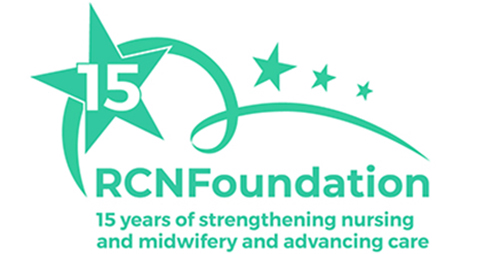The economic contributions of learning disability nurses
Professor Martin Knapp at London School of Economics and Political Science, outlines his findings following research exploring the economic case for investing in the RNLD workforce
In 2023, Martin Knapp, Magdalena Walbaum, Anushka Madhukar, and Nazak Salehi at London School of Economics and Political Science, were awarded funding from the RCN Foundation to explore the economic case for investing in building the Registered Nurses for Learning Disability (RNLD) workforce capacity, enabling it to address health inequality and poor health related quality of life outcomes for those with lived experience of a learning disability. You can read the full report here.
The research, presented by Martin Knapp at the RCN Foundation Annual Lecture, highlighted that there is no financial evidence to support the impact of the RNLD workforce and that there are real economic consequences of not addressing these issues. Ultimately, more research is needed to evidence the economic impact of RNLD's.
Evidence
Whilst the data available was limited, and with a heavy focus on services rather than workforce, the research did identify nine intervention categories across multiple health domains.
A rapid review was conducted by two independent reviewers, one which examined literature relating to LD nursing, assessing their benefits in various health contexts. The second examined database searches, focusing on the economic evidence surrounding the health context interventions identified in the first review, analysing the cost effectiveness and potential savings associated with nursing-led initiatives. You can read the full report, including methodology, findings, and outcome here.
Interventions
In brief, the nine interventions identified were:
1. Reducing and managing obesity
There was copious evidence to signify the effectiveness of RNLD's in reducing obesity in individuals with a learning disability. From targeting dietary habits and physical activity as well as dietary planning and weight management. However, there were no specific studies evaluating the economic impact of obesity management for people with LDs.
2. Improving sleep
The research found that nurse-led interventions improved sleep knowledge among parents, boosting confidence in managing sleep problems, with positive effects on children's sleep. Similarly, effective behavioural interventions led by nurses can significantly improve sleep quality in children with sleep problems. Again, there were no specific studies evaluating the economic impact of sleep management for people with LDs.
3. Managing constipation
Research found that RNLDs play a key role in raising awareness about treating constipation in individuals with LDs yet there are no specific studies evaluating the economic impact of constipation management for individuals with LDs.
4. Impact on family dynamics
Nursing interventions significantly reduced depression and improved family functioning in mothers of children with LDs. There is strong evidence for the positive effect of nursing interventions on carers' well-being in the UK as well as economic benefits. Advocacy services for parents with LDs demonstrated cost savings in social care, and better outcomes for parents and children.
5. Impact on co-morbidities - epilepsy
There is strong evidence from the UK for both clinical and economic benefits of specialised nursing roles in epilepsy management. For example, Epilepsy Specialist Nurses (ESN) improved seizure control and quality of life in individuals with epilepsy and LDs, reducing emergency admissions.
6. Managing behaviour that challenges
Nurses contribute to behavioural interventions (therapy, skill development, community integration) that improve behaviour that challenges and mental health outcomes. There is economic evidence to show that community LD nurses are cost-effective in managing aggressive behaviour, with reduced healthcare costs for severe cases.
7. Improving access to adult health checks
It is evident that RNLDs improve access to screenings (cervical, breast cancer) by supporting decision-making around consent and building trust with people with LD but unclear what this equates to in economic value. Despite annual health checks resulting in higher healthcare costs due to increased resource utilisation, they correlate with reduced unplanned healthcare use, indicating a proactive management approach. There is moderate evidence of effectiveness in increasing access to health screenings.
8. Influencing quality and safety of hospital stay for children and young people
It is shown that RNLDs positively influence hospital care quality and safety for children and young people with LDs and by improving organisational support, this could lead to better care and outcomes for children and young people with LD. Despite this, there are no specific studies evaluating the economic impact of hospital care management for children and young people with LDs.
9. Improving older people's wellbeing
Nursing interventions can address the growing needs of older adults with LDs, though more evidence is needed on the specific roles that nurses will play. As a result, there is limited evidence on the economic impact of nurse-led interventions for older adults with learning disabilities.
What does this mean?
This research has signified that LD nurses can effectively manage health issues, leading to improvements in both health outcomes and quality of life for individuals with learning disabilities. The economic implications of the interventions highlighted above emphasise the need for continued investment in LD nursing to enhance health outcomes, improve the cost-effectiveness of services and potentially reduce health and social care costs.
LSE have two recommendations - leverage existing economic research by utilising economic studies on family dynamics, co-morbidities, behaviours that challenge, and adult health checks to model the economic impact of LD nurses in the UK. This will help quantify the benefits of nursing interventions in these areas. And secondly, the wider economic and societal implications of effectively managing obesity and sleep disturbances. This should include connecting these findings to the robust evidence supporting the effectiveness of learning disability interventions in addressing these conditions.
To read the full report and recommendations, click here.






